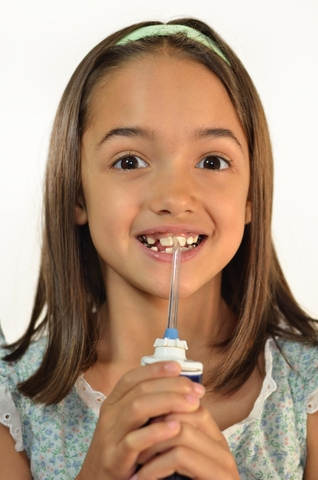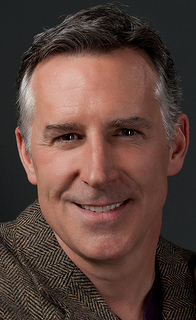June 30th, 2016

Bad breath: We’ve all dealt with it. You’ve been around people who have it and, like it or not, you have had it yourself. It can be embarrassing and uncomfortable, but how do you know if you have it? There is actually a simple test you can do to see if you have bad breath.
Wash your hands well, then put your finger in your mouth, way in the back. Scrape a little saliva from the back of your tongue, and then dab it on the back of your hand. Wait for one minute, then hold your hand to your nose and sniff. Is it fresh as a daisy? Or do you need to keep reading and learn how to freshen your breath?
How Bad Breath Starts
There are several ways that bad breath starts. Knowing the causes of bad breath is a solid start toward the cure.
- The bacteria in your mouth: Bacteria is always in your mouth. It covers your gums, hides between your teeth, and hangs out on your tongue. As it multiplies, it produces toxins that cause the foul odor in your mouth.
- Your bad habits: If you smoke cigarettes, a pipe, or cigars, or chew tobacco, you are not only harming your mouth and body, you are creating some really smelly breath.
- Your tonsils: If you still have your tonsils, they can be the cause of bad breath. They are pitted, so smelly substances can collect in the pits and lead to bad breath.
- Stomach issues: A stomach virus, ulcer, GERD, and other stomach issues could be the cause of your bad breath. A low-carb diet can put your body into a state of ketosis, which causes very bad breath.
- The foods you eat: Garlic, onion, and other pungent foods will linger with you … on your breath.
Tips for Busting Bad Breath
Achieving fresh breath isn’t difficult, but it does require a little work. Try these tips for fresher breath and a healthier mouth.
- Brush your teeth after every meal. You can also pick up a tongue scraper to use a couple of times a day to remove any lingering bacteria on your tongue.
- Floss once a day to remove food particles between your teeth as well as plaque. Your mouth will thank you.
- Gargle with special mouthwash to banish bad breath. The oxygen in it will kill the bacteria in your mouth that is causing your bad breath, and leave you fresh as a daisy!
- Drink water to avoid dry mouth, which is a common cause of bad breath.
- Ease your tummy troubles with antacids and other remedies. Ginger tea is a great tummy tamer.
- Chew gum that contains xylitol. Saliva keeps your mouth moist, and chewing gum makes you salivate. Bye bye, bad breath!
- Eat yogurt. It contains “good” bacteria that helps balance your gut and gives you a healthier mouth.
- Soothe your sinuses. Sinus infections can cause you to have bad breath. Actually, it is the post-nasal drip that causes the foul odor. Cure the infection and your breath will improve.
- Avoid all tobacco products (cigarettes, pipes, cigars, chewing tobacco, and snuff).
- Eat a healthy diet of fresh fruits and vegetables, lean meats, and whole grains.
And don't forget! Get regular dental checkups at Robson Dentistry.
June 23rd, 2016

Water picks, sometimes called “oral irrigators,” make an excellent addition to your regular home care regimen of brushing and flossing. Especially helpful to those who suffer from periodontal disease and those patients of ours undergoing orthodontic treatment with full-bracketed braces, water picks use powerful tiny bursts of water to dislodge food scraps, bacteria, and other debris nestled in the crevices of your mouth. Children undergoing orthodontic treatment may find using a water pick is beneficial if their toothbrush bristles tend to get caught on their wires or brackets.
When you use a water pick, you’re not only dislodging any particles or debris and bacteria you might have missed when brushing, you are also gently massaging the gums, which helps promote blood flow in the gums and keeps them healthy. While water picks are an excellent addition to your daily fight against gingivitis and other periodontal diseases, they are incapable of fully removing plaque, which is why Dr. James Robson and our team at Robson Dentistry want to remind you to keep brushing and flossing every day.
If you have sensitive teeth or gums and find it uncomfortable to floss daily, water picks are a good alternative to reduce discomfort while effectively cleaning between teeth. Diabetics sometimes prefer water picks to flossing because they don't cause bleeding of the gums, which can be a problem with floss. If you have a permanent bridge, crowns, or other dental restoration, you may find that a water pick helps you keep the area around the restorations clean.
So how do you choose the right water pick?
Water picks are available for home or portable use. The home versions tend to be larger and use standard electrical outlets, while portable models use batteries. Aside from the size difference, they work in the same manner, both using pulsating water streams. A more crucial difference between water picks is the ability to adjust the pressure. Most home models will let you choose from several pressure settings, depending on how sensitive your teeth and gums are. Most portable models have only one pressure setting. If you want to use mouthwash or a dental rinse in your water pick, check the label first; some models suggest using water only.
Please give us a call at our East Lyme, CT office if you have any questions about water picks, or ask Dr. James Robson during your next visit!
June 16th, 2016

Are you looking to improve the appearance of your front teeth? Dental veneers are widely used to improve the appearance of front teeth and are a much more conservative option than a full dental crown. Veneers can be used to improve the appearance of staining, large gaps, large fillings, chipped teeth, or overall shape. Veneers are a thin covering over the front and biting end of the tooth used to restore the beauty of a smile. Over the years we have helped many patients who opted for veneers and now have the confidence to smile again.
Dental veneers are made in a lab from long-lasting porcelain materials. The shade can be chosen to a desirable color to whiten the appearance of your smile. Dental veneers are usually placed on the anterior, or front teeth, where the chewing forces are not as hard as the back teeth. The process of placing veneers is relatively easy requiring only two dental appointments. In some cases, only one appointment is needed. It depends on the fabrication process.
The first appointment is to “prep” the teeth and take an impression to be sent to a lab to fabricate the veneers. Veneers are fairly conservative in the preparation as it requires a small amount of space to be created on the face (front), bottom, and sides of each tooth to allow space for the veneer to be placed and look natural. You will leave the office with temporary veneers for the next week or two while the permanent veneers are being made.
The second appointment is to place the veneers and make minor adjustments if needed. What a difference it makes in the appearance of the teeth! If you’re interested in learning more, give Dr. James Robson a call today!
June 9th, 2016

Losing a tooth can affect a lot more than just the look of your smile. Missing teeth affect your ability to chew and can also cause problems for your other teeth. It is essential to replace missing teeth in order to maintain oral health as well as your overall well-being. Dental implants are an excellent option to replace your natural tooth and its root without affecting your neighboring teeth, and are available from Dr. James Robson.
Why choose dental implants?
There are many reasons to choose dental implants to replace your lost or damaged teeth. According to the American Academy of Implant Dentistry, dental implants are often considered more predictable than other treatment options and are known to provide long-term successful outcomes.
Dental implants provide many benefits over other treatments such as bridgework and dentures:
- Unlike other treatment options for missing teeth, dental implants allow Dr. James Robson to replace your tooth without impacting the healthy teeth surrounding the space.
- Dental implants also protect healthy bone by preventing potential bone loss and deterioration in the jaw.
- This treatment option allows you to speak and eat normally without worrying about slippery or uncomfortable removable dentures.
- The closest thing to natural teeth, dental implants allow you to maintain your smile and natural face shape.
- These implants are built to last, providing you with a long-term solution to missing teeth.
Overall, dental implants are the next best thing to natural, healthy teeth. Choosing to undergo surgery to replace your lost or damaged teeth is an important decision. To avoid the issues caused by lost teeth, consult Dr. James Robson or visit our East Lyme, CT office to see if you are a candidate for dental implants.




